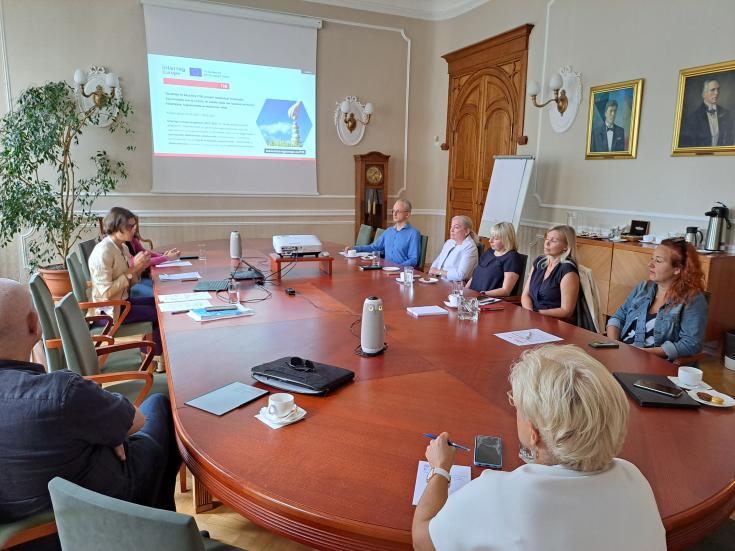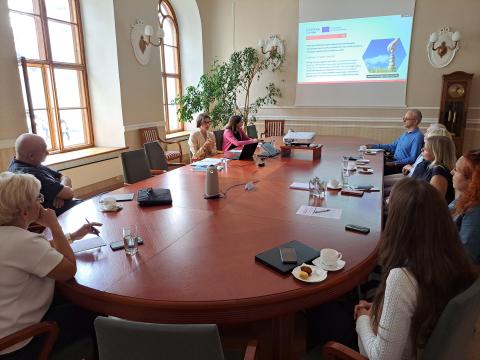Tallinn's Stakeholders unite for Sustainable Tourism Growth
In a collaborative effort to address the challenges posed by overtourism and to chart a sustainable future for Tallinn's tourism industry, stakeholders of the Tourism in Balance project convened at the Chamber of Commerce for a comprehensive meeting. The gathering brought together key representatives from various organizations to discuss crucial aspects such as tourism tolerance, visitor dispersion, and strategic planning.
The lively discussion delved into the pre-pandemic manifestations of overtourism in the historic Old Town of Tallinn. Participants shared insights on the impacts of excessive tourism, exploring potential solutions to balance the influx of visitors and preserve the cultural and historical integrity of the city.
Among the focal points were the tourism developments anticipated in the coming years and the exploration of innovative strategies for the temporal and spatial dispersion of foreign visitors. The stakeholders engaged in a forward-looking dialogue, emphasizing the importance of sustainable growth that benefits both the local community and tourists.
Expressing gratitude for the active participation of experts in the field, the organisers highlighted the significance of collaborative thinking in addressing the complex challenges facing Tallinn's tourism sector. "In cooperation, we reach the best result," remarked one of the organizers, underscoring the collective commitment to fostering a balanced and sustainable tourism environment.
The meeting saw representation from key organisations invested in the success of Tallinn's tourism industry. Notable participants included Hele Lõhmus from the Strategic Management Office (Visit Tallinn), Liis Läte from the Estonian Tourist Board, Katri Tšeskidov from the Harju, Rapla, and Lääne County DMO, Aleksandr Michelson from the Estonian Ministry of Economic Affairs and Communication, Udo Ots from the Tallinn Transport Department, and Ingrid Berezin from the Port of Tallinn.
Other organisations contributing to the dialogue included the Estonian Travel and Tourism Association (Külli Karing), Tallinn Guide Association (Aliis Palo Hazlehurst), Estonian Convention Bureau (Kadri Karu), and the Estonian Chamber of Commerce and Industry, represented by Piret Potisepp, Kaur Orgusaar, and Kaie Tropp.
The collaborative spirit evident in the meeting reflects a shared commitment to shaping a sustainable and resilient tourism landscape in Tallinn. As discussions progress, the Tourism in Balance project aims to implement strategic initiatives that balance the economic benefits of tourism with the preservation of Tallinn's rich cultural and historical heritage.

